QuestionI have had numerous fighting fish now and for some reason, I have them for a couple of months then one day they bloat, double their size and die. I had one fighter for 2 and a half years and he bloated a few times and managed to live through it. Their scales lift out and they just look like they are going to explode. I have tried feeding them less but it still happens. Any ideas?
AnswerDear Amy,
Sounds like what you are describing is dropsy. The dreaded disease that some fish are very suceptible to. The whole body bloats and their scales lift out. When viewed from above the poor fish looks like a pinecone.
Unfortunately dropsy is extremely difficult to treat because it can have many causes. Such as bacterial, viral, parasitic, or even tumors or water quality related. And tends to be a symptom of a deteriorated health condition. The swelling of course is due to the fish not being able to regulate the amount of fluid in a part of it's body. Dropsy can be brought upon by stress factors, like low pH due to lack of maintenance, or ammonia or nitrite levels being present. Older fish tend to be much more suceptible to drospy than others as well.
Dropsy is not contagious, but if one fish has it. The others are at risk especially if the causes are enviromental.
It is much easier to prevent than to cure dropsy. Sadly, once a fishes scales are raised and body is bloated then he is too far gone and cannot recover. However, sometimes if caught early, dropsy can be effectively treated with an antibacterial medication and salt baths. Catching it early means watching for any of your bettas for behavorial changes, such as they stop eating and often hang back during feeding times and generally behave very listless.
The best prevention for dropsy is to know your fish and what water parameters and temperature they do best at. And insure they have a quality and balanced diet.
Bettas are healthiest in a small heated and filtered aquarium of at least 10 gallons ideally a well-planted aquarium with no aggressive tankmates, if tankmates are wanted then choose only small and very docile species such as Harlequin Rasboras or small tetras or cherry barbs.
Water temperature is very important for bettas, at stable and relatively constant temperature of 78-80F is best. Clean and gently filtered water is very vital for betta health. At least once or twice a week water changes of 30-50% is best--always insuring the replacement water is equal in temperature to that of your aquarium and insure it is dechlorinated everytime.
Good quality diet formed of a staple of betta flakes or pellets, frequently supplemented with frozen and freeze dried foods such as Redworms, Mosquito larvae, Brine Shrimp, Daphnia, small bite-sized pieces of krill and shrimp, ect...
I really hope this helps! I'm not blaming you for any poor betta care but maybe it's something you are not aware of that is causing these nearly constant dropsy problems.
Best wishes as always,
Karen~

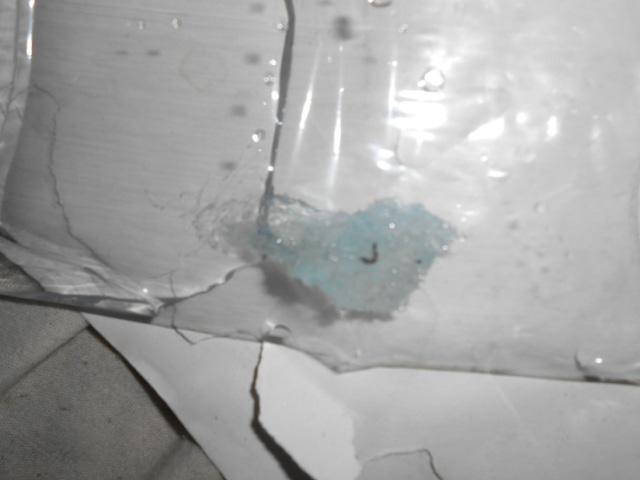 Mystery Worm
Question
Mystery Worm
I have a 75 gallon freshwa
Mystery Worm
Question
Mystery Worm
I have a 75 gallon freshwa
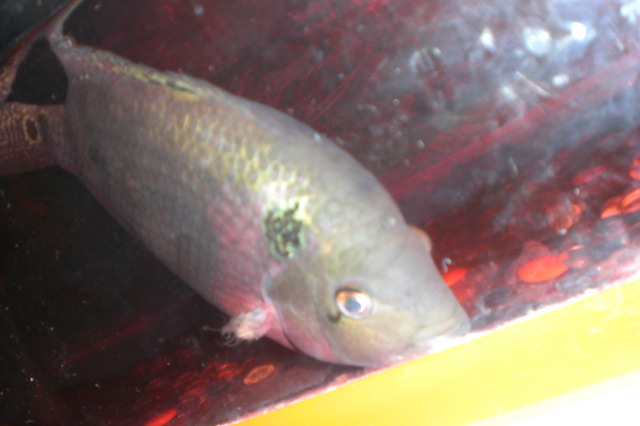 hi (about my flower horn fish)
Question
this is my flowerhorn
hi how are u? im just h
hi (about my flower horn fish)
Question
this is my flowerhorn
hi how are u? im just h
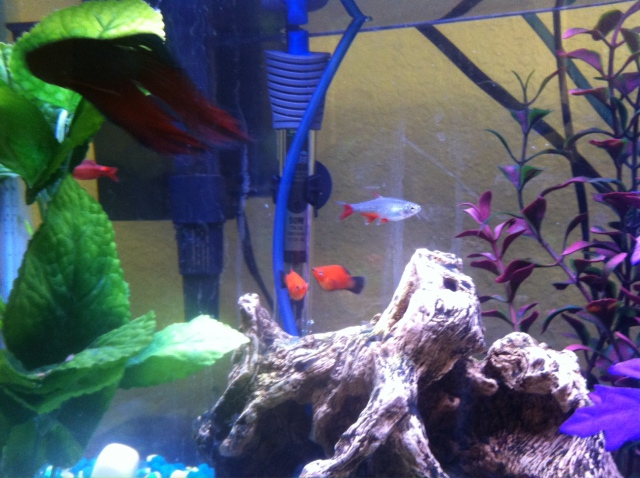 Question re tank mates
Question
White Cloud Minnow?
Hi and thanks for t
Question re tank mates
Question
White Cloud Minnow?
Hi and thanks for t
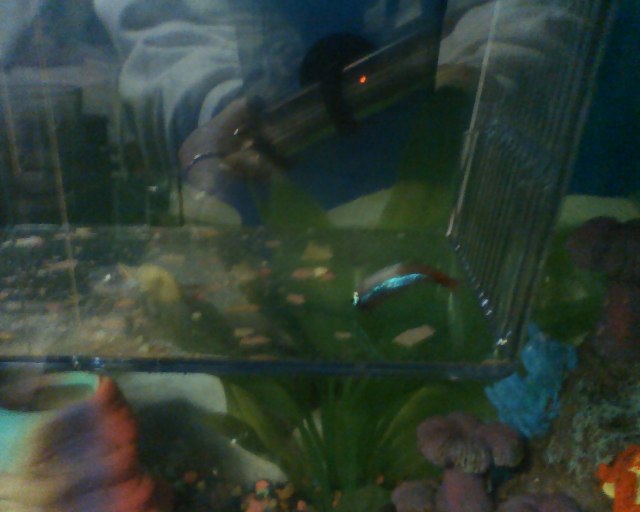 Whats wrong with my fish? Can you please help me?
Question
Neon Tetra tail bent
Hi I was emailing
Whats wrong with my fish? Can you please help me?
Question
Neon Tetra tail bent
Hi I was emailing
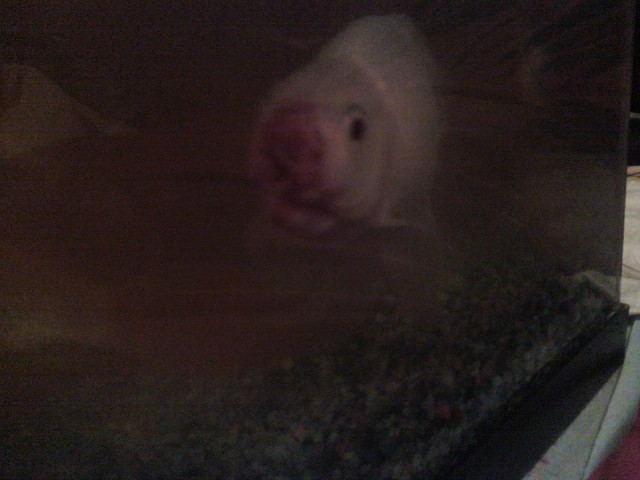 Broken lips
QuestionQUESTION: Hello expert, i hope you can help me.
Broken lips
QuestionQUESTION: Hello expert, i hope you can help me.